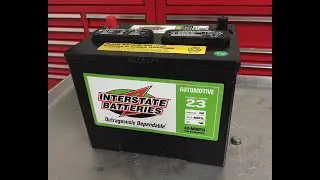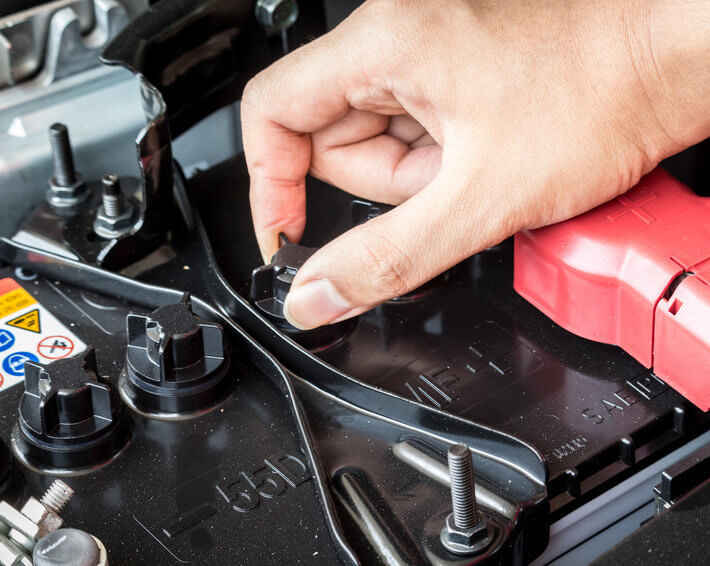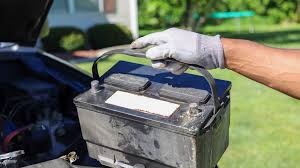Car batteries are an essential component of any vehicle, as they provide the power necessary for the car to start and run. However, not all car owners know the basics about how car batteries work, including whether new car batteries come charged.

This article aims to provide a comprehensive and detailed explanation of the topic to help readers better understand the concept.
How car batteries work
Car batteries are designed to generate and store electricity that is used to start and run a vehicle. They are typically made up of lead-acid cells that convert chemical energy into electrical energy through a process called electrolysis.
The battery is composed of lead plates immersed in an electrolyte solution of sulfuric acid and water. When the battery is supplying power, the lead plates turn into lead sulfate, and when the battery is being charged, the lead sulfate reverts back to lead and sulfuric acid.

New car batteries and charging
New car batteries are manufactured using a process called formation, which is used to charge the battery and activate the lead-acid cells. During the formation process, the lead plates are submerged in an electrolyte solution and are charged at a high voltage for an extended period of time.
This process ensures that the battery is fully charged and ready for use when it leaves the factory. However, it’s important to note that the charge level of a new car battery may vary depending on factors such as the storage and transportation conditions.
Charging a new car battery
If a new car battery’s charge level is low, it can be charged using a battery charger. The recommended charging method for a new car battery is to use a slow or “trickle” charger, which is designed to charge the battery at a low amperage over an extended period of time.
This type of charger is considered the safest and most efficient method for charging a car battery. Additionally, it is important to use a charger that is specifically designed for use with car batteries and to follow the manufacturer’s instructions for proper use.
When charging a car battery, it’s important to take safety precautions, such as wearing protective gear and avoiding open flames or sparks near the battery. Additionally, it’s recommended to not leave a charger connected to the battery for an extended period of time, as this can lead to overcharging and damage to the battery.

Conclusion
In conclusion, new car batteries are typically charged during the manufacturing process, but the charge level may vary depending on storage and transportation conditions.
To ensure that a new car battery is fully charged and ready for use, it’s recommended to use a slow or “trickle” charger and to follow the manufacturer’s instructions for proper use.
Additionally, it’s important to take safety precautions when charging a car battery and to maintain and prolong the life of the battery by following the manufacturer’s recommendations for proper care and use. For more information, consult your vehicle’s owner manual or a professional mechanic.
How can I tell if my new car battery is fully charged?
One way to check the charge level of a new car battery is to use a multimeter, which can measure the voltage of the battery. A fully charged car battery should have a voltage of around 12.6 to 12.8 volts.
Another way to check the charge level is by starting the vehicle and measuring the voltage with the engine running. A properly charged battery should have a voltage of around 13.7 to 14.7 volts.
How long does it take to charge a new car battery?
The time it takes to charge a new car battery can vary depending on the type of charger being used and the initial charge level of the battery. Using a slow or “trickle” charger, it can take anywhere from 8 to 12 hours to fully charge a new car battery.
It’s important to note that it’s not recommended to leave a charger connected to the battery for an extended period of time as this can lead to overcharging and damage the battery.
Can I use my car’s alternator to charge a new car battery?
Yes, it is possible to use your car’s alternator to charge a new car battery, but it’s not the most efficient method. The alternator is designed to maintain the battery’s charge while the vehicle is running, and it may not be able to provide enough power to fully charge a new car battery.
It’s recommended to use a slow or “trickle” charger for this purpose.
Is it safe to charge a new car battery with a fast charger?
While it is possible to charge a new car battery with a fast charger, it’s not recommended. Fast chargers are designed to charge the battery at a higher amperage, which can cause the battery to heat up and potentially damage it.
Slow or “trickle” chargers are considered the safest and most efficient method for charging a new car battery.
Can a new car battery be damaged if it’s not used for an extended period of time?
Yes, a new car battery can be damaged if it’s not used for an extended period of time. If a car battery is not used for an extended period of time, the lead sulfate can harden and crystallize, which can reduce the battery’s ability to hold a charge.
To prevent this from happening, it’s recommended to start the vehicle and let it run for a few minutes at least once a month. Also, ensure to disconnect the battery if the vehicle will not be used for an extended period.